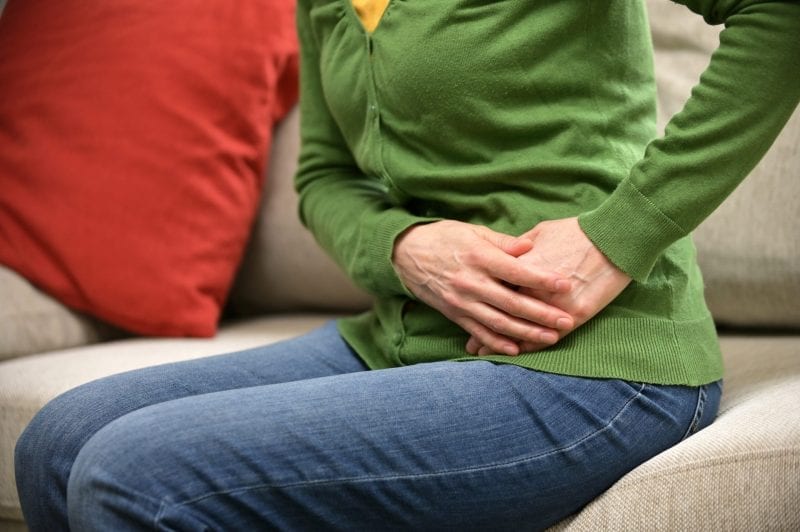Bowel endometriosis is a complex and often misdiagnosed health condition that can significantly impact a woman’s quality of life by its presence and as a consequence of complications due to inadequate treatment. This article aims to shed light on this condition, its symptoms, diagnosis, treatments, and more.
Understanding Endometriosis
Endometriosis is a gynecological condition where the endometrial-like tissue, which typically lines the uterus, grows outside the uterus. This aberrant tissue growth can occur in various parts of the body, including the ovaries, Fallopian tubes, and the lining of the pelvic cavity. In some cases, this tissue may also spread beyond reproductive organs and implant on the bowel.
Bowel Endometriosis: An Overview
Bowel endometriosis, a specific form of endometriosis, involves the growth of endometrial tissue on or inside the walls of the bowel, including the small and large bowel as well as the stomach. This condition can result in bloating (endo belly), pain after eating, pain or bleeding with bowel movements, constipation, diarrhea, and other gastrointestinal symptoms.
The severity of bowel endometriosis can vary with the depth of tissue infiltration. It can be superficial, where the endometriosis tissue grows on the surface of the bowel, or deep, where it infiltrates through the bowel wall. Bleeding, for example, usually only occurs if the endometriosis has grown through the entire bowel wall thickness.
Prevalence of Bowel Endometriosis
While endometriosis affects up to 15% of women of reproductive age, bowel endometriosis is less common but not rare. Studies suggest that bowel endometriosis occurs in up to 37% of all endometriosis cases, making it a significant concern for women suffering from this condition.
Causes of Bowel Endometriosis Symptoms
The symptoms of bowel endometriosis are diverse and largely depend on the location, size, and depth of the endometriosis lesions on or within the bowel wall. Some women with bowel endometriosis may not experience any symptoms, while others may experience varying degrees of discomfort. In addition, bowel symptoms may be due to endometriosis-induced inflammation inside the abdomen and pelvis without endo actually growing on the bowel wall. Finally, other bowel conditions like small intestinal bacterial overgrowth (SIBO) often co-exist with endo but are not caused by endometriosis per se. Conditions such as SIBO are medically treatable, including integrative modalities.
Diagnosis of Bowel Endometriosis
A definitive diagnosis of bowel endometriosis usually involves multiple steps. Initially, your doctor may perform an exam and ask about your symptoms and medical history. They may also recommend imaging tests to provide more information about the location of possible endometriosis implants. These tests may include:
- Transvaginal or transrectal ultrasound
- Magnetic resonance imaging (MRI) or magnetic resonance enterography (MRE)
- Barium enema
- Colonoscopy
While these tests can help identify potential lesions, a definitive diagnosis of bowel endometriosis requires a biopsy through endoscopic surgical exploration or both.
Treatment Options for Bowel Endometriosis
The treatment for bowel endometriosis is tailored based on the individual’s symptoms, medical history, and future fertility plans. The reason fertility desires is mentioned here is that some bowel surgery can lead to an increased risk of infection, and this can impact reproductive organ function. Treatment options include:
Medical treatments
These medications control estrogen and progesterone levels, which can modulate bowel endometriosis symptoms. They may lower your risk of symptoms returning. None of these are likely to eliminate endometriosis lesions, but can help with symptoms and sometimes reduce the risk of recurrence after surgery. However, the least injurious hormonal options should be considered first. This requires expert management.
Surgery
Surgery is often the treatment of choice for bowel endometriosis. Surgery aims to remove as many lesions as possible while maintaining the functionality of the bowel and minimizing the risk of leak or infection in the areas of surgery.
With rare exceptions, the best surgery is the excision of lesions rather than fulguration or burning of lesions. This is both to adequately remove the lesions and for safety because the depth of burn injury is hard to measure and can increase the risk of leak, abscess, and infection.
In deeply infiltrating endometriosis of the rectal area or surrounding tissues, the approach may vary based on the involvement of the bowel wall or the mesentery, which is where the blood vessels to the rectum are located. The treatments for bowel endometriosis include shaving, nodulectomy, disc resection, and formal bowel resection with sutured or stapled anastomosis. The surgeon should be capable of performing any of these procedures as needed at the time. In some cases, this may be the main excision surgeon, if they have bowel surgery training and hospital privileges, and in other cases this may be another surgeon who is part of the backup team. In the latter situation, it is best to address the possibility of bowel surgery and options before surgery and not as an emergency during surgery, when appropriate surgeons may not be readily available.
Small bowel or stomach implants are less common, but larger lesions are treated similarly. If there are multiple tiny sub-millimeter implants on small bowel, this is most often not a surgically correctable problem. The reason is that resecting multiple lesions increases the risk of bowel leak exponentially, and the risk then outweighs the benefit. This balance requires keen surgical intraoperative judgment and should not rest in the hands of an intraoperative surgery consultant who does not know the patient. It is crucial to choose your endo surgeon specialist carefully.
Counseling
Bowel endometriosis is a chronic condition that can significantly impact both physical and mental health. Counseling can provide emotional support and strategies to help manage the condition effectively.
Long-Term Outcomes
The long-term outcomes of bowel endometriosis treatment revolve around pain relief, recurrence rates, and fertility. Studies show that surgical treatment of bowel endometriosis can result in significant pain relief and improvement in the quality of life.
However, recurrence rates can range from 4.7% to 25% in the years following surgery. In large part this is a wide range because many do not have the benefit of expert excision surgery. The pregnancy rate following bowel resection for severe endometriosis varies between 24% and 57%. This also varies widely partly because not everyone gets the benefit of expert surgery.
Conclusion
Bowel endometriosis is a challenging and often misdiagnosed condition. However, with the correct diagnosis and treatment, managing the symptoms and improving the quality of life is possible. If you suspect that you may have bowel endometriosis, it’s essential to consult with an endometriosis specialist who is very experienced in treating this condition.
In this author-surgeon’s opinion, the best outcome will likely occur when the primary excision surgeon has the training, competence, certification, and privileges to perform bowel surgery. This is not the case in most situations. At that point, a closely coordinated team can fill the gap. However, if the bowel surgery is performed ad hoc by a surgeon who does not know the patient due to emergency intraoperative consultation, this situation is more likely to lead to unfavorable overall results.
References:
https://www.ncbi.nlm.nih.gov/pmc/articles/PMC6397811/
https://www.ncbi.nlm.nih.gov/pmc/articles/PMC4229526/
Surgical Outcomes after Colorectal Surgery for Endometriosis: A Systematic Review and Meta-analysis


